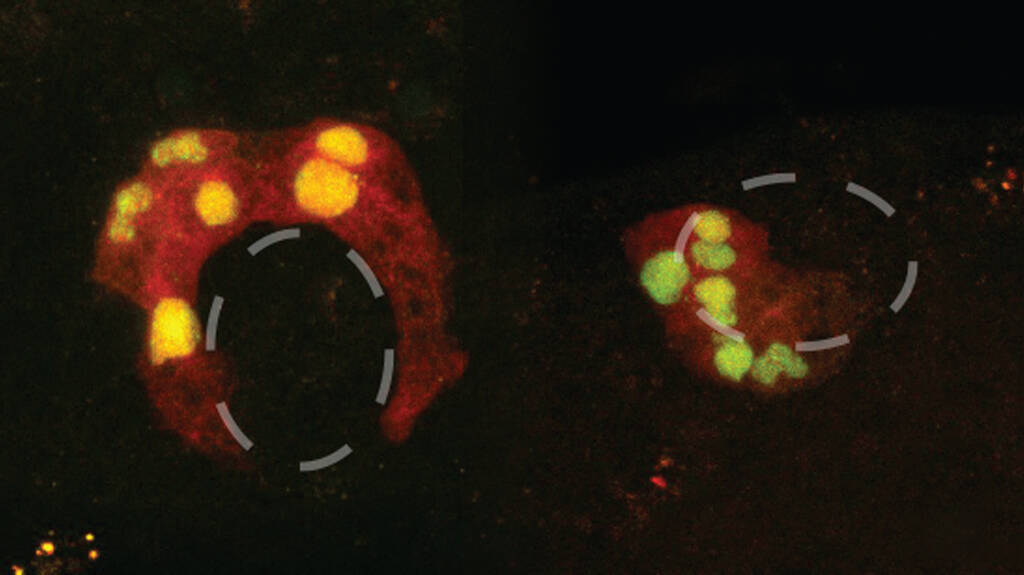The chain of command inside human cells is similar to the way a factory is run, IMB's Dr Nathan Palpant says.
Dr Palpant teamed up with Associate Professor Mikael Boden and their really big news is that they have found the password to the chief executive’s computer – metaphorically speaking.
“We discovered a simple but powerful rule revealing how cells are controlled by rare decision-making genes,” Dr Palpant said.
“Like workers on a factory production line, each gene has a specific function.
Decision-making genes are the supervisors

“The decision-making genes are like the supervisor, or the chief executive – rarer than the workers, and with the power to make big decisions and impact operations of the whole cell.
“Every cell has the same DNA but each cell accesses it differently.
We have been able to simplify the rules of how cells access the DNA, in order to identify the rare but powerful decision-making genes.”
Pinpointing the genes controlling cells

Dr Boden, from UQ’s School of Chemistry and Molecular Biosciences, said the rules governing cells’ operations were “so evolutionarily conserved” that the new knowledge would help identify “chief executive cells” theoretically in any cell type across the animal kingdom, ranging from fruit flies to sea squirts, birds and humans.
“This discovery has far-reaching implications because it can help us understand how cells respond to heart attacks and how aquatic animals respond to global warming, among many other issues.”
Dr Palpant said being able to pinpoint the genes controlling cell decisions created opportunities to control cell responses.
“When the body is injured, like in a heart attack, or stressed by an infection such as COVID-19, cells respond, adapt and make decisions,” he said.
Blocking bad decisions to prevent disease
“Unfortunately sometimes cells make bad decisions, which can cause more damage, leading to cell death and organ failure.
“Until now, what controls these decisions has been a big mystery.
“Our discovery means that in the future, we may be able to block a cell’s bad decisions when things go wrong in disease or in the environment.
“We are working with international collaborators to understand how we can block the bad decisions and prevent diseases.
Surviving stressful environments
“Having a better understanding of how cells work will boost human health, agriculture, ecology, marine biology, and many fields that are dependent on understanding how cells make decisions based on a changing and sometimes stressful environment.”
This research is published in Cell Systems and funded by the Australian Research Council.



